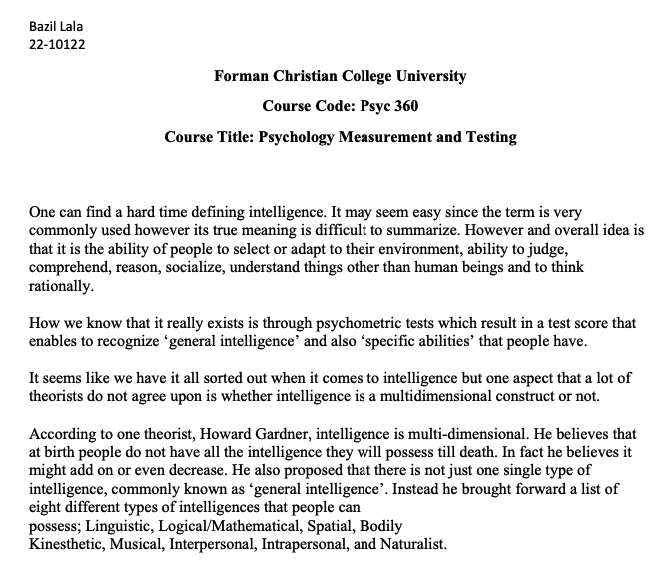Defining Intelligence
Summary:
Defining intelligence is challenging despite its frequent use in daily parlance. It’s the capability to adapt to the environment, reason, judge, understand and think logically. Intelligence’s existence is evidenced through psychometric tests that discern both general intelligence and distinct abilities.
There’s disagreement among experts about whether intelligence is multi-dimensional. Howard Gardner, a prominent theorist, posits that intelligence is multi-dimensional. Contrary to popular belief in a single ‘general intelligence’, Gardner lists eight distinct bits of intelligence: Linguistic, Logical/Mathematical, Spatial, Bodily-Kinesthetic, Musical, Interpersonal, Intrapersonal, and Naturalist. While schools prioritize linguistic and logical-mathematical, Gardner highlights the significance of other intelligences used in daily life. He also points to other intelligences like spiritual, existential, and moral intelligence, though they aren’t on his primary list.
Gardner’s perspective is that people have varying strengths across different intelligences, making it inappropriate to label someone purely as intelligent. While Gardner’s theory faces criticism for being overly broad and merely enumerating talents rather than intelligence, educators still find value in it for tailored teaching methods.
Excerpt:
Defining Intelligence
Forman Christian College University
Course Code: Psyc 360
Course Title: Psychology Measurement and Testing
One can have a hard time defining intelligence. It may seem easy since the term is very commonly used however its true meaning is difficult to summarize. However, the overall idea is that it is the ability of people to select or adapt to their environment, judge, comprehend, reason, socialize, understand things other than human beings and think rationally.
We know that it exists through psychometric tests, which result in a test score that enables us to recognize ‘general intelligence’ and ‘specific abilities that people have.
It seems like we have it all sorted out when it comes to intelligence, but one aspect that a lot of theorists do not agree upon is whether intelligence is a multidimensional construct or not.
According to one theorist, Howard Gardner, intelligence is multi-dimensional. He believes that at birth, people do not have all the intelligence they will possess till death. He believes it might add on or even decrease. He also proposed that there is not just one type of intelligence, commonly known as ‘general intelligence’.


Reviews